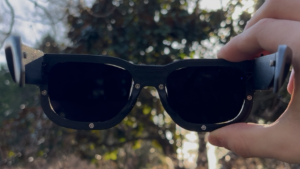In today’s age of smartphones and fingerprint recognition, countless people misguidedly consider biometrics the most robust protection to date. An increasing amount of devices require a fingerprint ID and many hail it as the ultimate authentication solution. Even though it is becoming increasingly more mainstream, the technology hasn’t proved itself to be hacker-proof and unlike ID numbers and passcodes it’s not easily changed. Rhode Island School of Design senior, Mian Wei, designed IDENTITY to counter this uncertainty.

A bandage-like cover that the user simply wraps around the tip of their index finger, IDENTITY is designed to create an impression even harder to mimic than an actual fingerprint. Fully disposable and replaceable, IDENTITY provides a way for consumers to safeguard their biometrics from companies seeking to accumulate data on customers, or hackers looking to steal identities.
In 2015’s infamous US Office of Personnel Management breach, some 5.6 million fingerprints were stolen by hackers. As Wei points out in an interview with Motherboard, fingerprints are easily traceable, duplicable and irreplaceable. “Many people believe we are all cyborgs now, connected to the Internet 24 hours,” he says. “When we set our own skin as the passcode it is a solid and definite connection. You can [Photoshop] your face now, but you can't really change your fingerprints, and you [lose] them on everything you touch.”
Initially designed for a prosthetics class, the product is made from conductive silicone and randomly generated fibre patterns. These patterns replace the minute ridges that sensors ordinarily pick up from a true fingerprint. The strips are deliberately packaged in a fashion that evokes the familiarity of traditional adhesive bandage boxes, addressing Wei’s goal of developing a biometric privacy product that people would actually want to use in the real world.
Since debuting the product at a year-end student exhibition, Wei has begun to consider the mass-production and sale of IDENTITY. Although he has yet to strike a deal with a manufacturer, the pioneering invention has already created quite the stir, and according to Motherboard’s Joshua Kopstein, they are the real deal. “It definitely works,” he writes. “Once I had assigned the fake finger to unlock my phone, the prosthetic was just as dependable as my real finger.”











